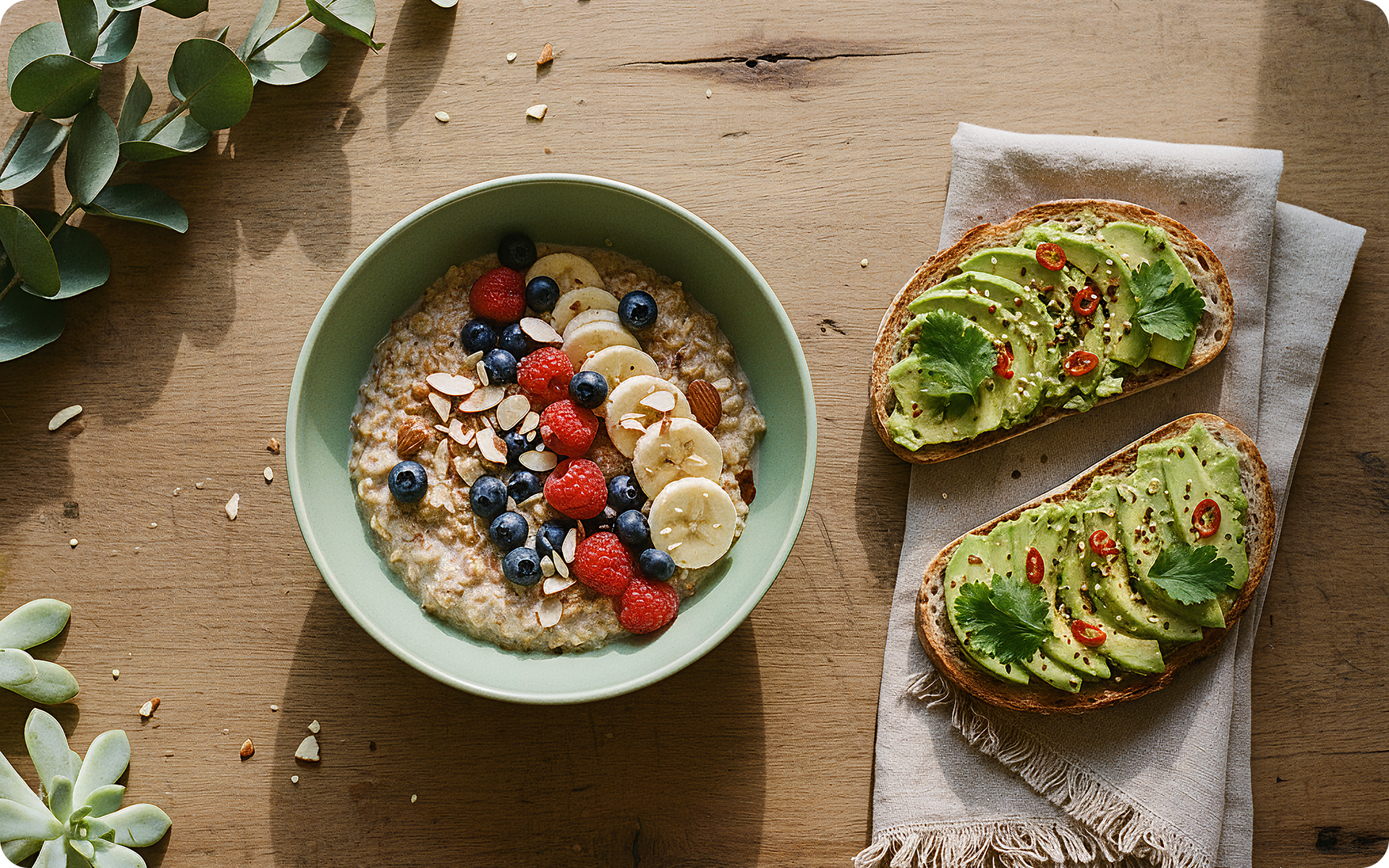There’s a common misconception that ‘3,500 calories equal a pound’. While the food you eat can impact your weight and energy levels, we’d have to agree to disagree and say that the science behind this statement is not as straightforward.
Your body has a different composition compared to another person, thanks to your BMR, which is why we can’t equate this statement for everyone.
Follow us into the discussion as we look at how many calories it takes to gain a pound and safe and healthy ways you can gain weight.
3,500 Calories In A Pound: Myth Or Fact?
One pound equals 3,500 is a misconception that many have come to believe, but you shouldn’t. A research study conducted by scientists in 1958 came up with this long-held myth that 3,500 calories equals a pound of fat, but after a series of analyses, it turns out that’s not exactly how the science works.
Weight gain (or weight loss) is affected by your basal metabolic rate (BMR), meaning we all have different energy needs based on your age, gender, activity levels, and current weight/ body mass/ body composition. That said, you can’t equate a standard calorie count for everyone because the same 3,500 calories would be used up differently depending on your body’s needs and metabolism.
Let’s break it down further.
To gain weight, you need more calories than what you use, but the energy you expend isn’t the same as someone else’s. An active individual will burn more calories than someone who lives a sedentary life. Therefore, while someone who does little to no exercise may gain a pound each week from an additional 3,500 calories on their diet, that increase won’t be the same for an active person who will expend more energy during a workout.
Therefore, the ‘3,500 calories equal one pound’ rule is inaccurate and doesn’t consider other crucial elements such as:
- Body weight changes throughout weight gain. As the body mass increases, so does the energy expenditure.
- Lifestyle changes may affect your energy balance as to how much energy you should intake vs. energy output.
- Long-term energy balance. When you achieve your intended weight gain, what happens to your energy balance?
- Where are the calories coming from? For example, the calories in a pound of fat are more than in a pound of carbs and protein.
- Body factors, like your gut microflora, which may affect how much energy is absorbed into the body since there’s no direct path from calories to pounds.
- How much exercise you do. Exercise produces wide variations in body weight responses as others gain weight and others lose weight.
Without considering all these facts, the rule becomes unreliable and therefore shouldn’t be a standing rule for people to follow.
Read More: Body Recomposition: Here’s How To Lose Fat And Gain Muscle All At The Same Time
How Many Calories Does It Take To Gain A Pound?
Ideally, to gain a pound in a week, you should intake approximately 3,500 calories divided as an extra 500 calories a day (7). But, start by calculating your maintenance calories. After which, you create a caloric surplus where you intake more food/calories than what your body needs to sustain your daily activities, leaving your body with additional calories to increase your body mass.
There are three methods you can use to determine your current maintenance calories.
1. Weight Maintenance Calculations
If you’re moderately active like you partake in 30 minutes of exercise each day, multiply your current weight in pounds by 15 to give you a rough estimate of the number of calories per pound of body weight required to maintain your current weight.
Current weight (lbs) × 15 = total maintenance calories
Unfortunately, this formula is biased since it’s based on your activity levels, and it only gives a very rough estimate.
2. Calorie Calculators And Tracking Apps
Alternatively, you can use online calculators like BetterMe Calorie Tracker (available on Google Play and App Store). The tracker will estimate your calorie needs based on your sex, age, weight, and height.
Suppose you don’t quite understand that method. In that case, you can use weight tracking apps to give you your average calorie intake after tracking your daily calorie intake and weight for a specified period.
3. Harris-Benedict Equation
The most accurate method which professionals also use is the Harris-Benedict Equation. Start by calculating your BMR, then multiply the result by your activity factor from sedentary to very active. The result is your daily calorie needs/ maintenance calories.
- Adult male – 66 + (6.3 x body weight in lb) + (12.9 x height in inches) – (6.8 x age in years) = BMR
- Adult female – 655 + (4.3 x weight in lb) + (4.7 x height in inches) – (4.7 x age in years) = BMR
Once you acquire your BMR, use it in the following equation (based on your activity levels).
- Sedentary meaning little or no exercise = BMR x 1.2
- Minimally active – one to three days per week of exercise or activity = BMR x 1.375
- Moderately active – three to five days per week of moderate activity or sports = BMR x 1.55
- Very active – six to seven days per week of strenuous exercise = BMR x 1.725
- Extra active – athletes who train even twice per day = BMR x 1.9
Now that you have your maintenance calories, aim for a caloric surplus by increasing 500 to 700 calories in your daily calorie intake; this is opposite to a calorie deficit where you intake fewer calories in order to lose weight.
- Caloric Surplus = calories to maintain weight + extra calories
- Caloric Deficit/ calorie intake to lose weight = maintenance calories – calories
Even though the additional 500 calories will equate to an extra 3,500 at the end of the week, it doesn’t automatically mean you will gain a pound.
As you gain weight, continue to readjust your calorie intake to ensure you’re gaining weight, and when you achieve your desired weight, you can still recalculate maintenance calories.
BetterMe is your fast-track ticket to a long-lasting weight loss! Tailor your fitness journey and maximize your results with just a couple of swipes!
How To Gain Weight Safely?
Weight gain is tricky because if you’re not keen on what you intake, you can easily intake calories for weight loss meaning the energy expenditure of the food is much faster, causing you to lose weight rather than gain.
Here are a few tips to help you gain weight safely:
- Eat more frequently, especially if you have a fast metabolism or tend to feel full fast.
- Choose nutrient-dense foods such as whole-grain foods, lean protein, and high-calorie seeds and nuts.
- Drink healthy calories like fruit-filled milkshakes, water, and fruit juices rather than sugar-sweetened drinks like soda. While they offer a boost of energy, they rarely last long in your body.
- Exercise. Strength training can help you build muscle mass which then aids you in gaining weight. However, other forms of exercise like yoga, pilates, and aerobics can be advantageous too.
- Add extra calories to your meals like adding cheese over soups and spread, add more oil during dressing, and add nuts and seeds to your shakes or salads.
- Incorporate healthy fats like seafood, olives, avocado, and oils in your body rather than trans fats and saturated fats.
Before we wind up, we would like to speak about “dirty” bulking, where you intake high calories like high fat and high sugar meals to achieve a calorie surplus faster as you would see with weightlifters and bodybuilders. While it results in fast weight gain, it can have adverse side effects. Such side effects include unwanted fat gain, elevated cholesterol and blood sugar levels, high blood pressure, stroke, or diabetes (3, 4, 6).
Therefore, be patient with your body for a healthy and safe weight loss journey and ensure you create a healthy caloric surplus.
What If You Want To Lose A Pound?
If you’re trying to lose a pound, you might be wondering how many calories you should be eating. The answer depends on a few factors, including your weight, activity level, and goals.
Generally speaking, you need to create a calorie deficit to lose weight. This means that you need to burn more calories than you consume. There are a number of ways to do this, including reducing your calorie intake and increasing your activity level.
If you’re trying to lose a pound, you should aim for a calorie deficit of 500 calories per day. This can be accomplished by eating 250 fewer calories each day andburnings an additional 250 calories through exercise.
Keep in mind that weight loss is not always linear. You might lose a few pounds one week and then stay the same or even gain a pound the next week. This is normal and doesn’t mean that you’re not losing fat.
Also, remember that it’s important to focus on health, not just weight loss. Losing weight should be a side effect of making healthy changes to your lifestyle. By making small, sustainable changes, you’ll be more likely to keep the weight off in the long-term.
Conclusion
There’s no clear answer to how many calories it takes to gain a pound because there are many factors to consider, some of which are physiological, and others refer back to your body weight changes.
The healthiest way to gain weight is to consume nutrient-dense foods like seafood, lean protein, whole-grain foods, healthy oils, and nuts and seeds. Maintain your exercises to keep your body active, and remember to recalculate your calorie needs often to ensure you adjust to the changes in your body.
Do you know that your body needs some exercise in addition to a proper diet? Check out this 20-min Full Body Workout at Home.
DISCLAIMER:
This article is intended for general informational purposes only and does not address individual circumstances. It is not a substitute for professional advice or help and should not be relied on to make decisions of any kind. A licensed physician should be consulted for the diagnosis and treatment of any medical conditions. Any action you take upon the information presented in this article is strictly at your own risk and responsibility!
SOURCES:
- Body Weight Planner (n.d., niddk.nih.gov)
- Calculate calorie needs (n.d., checkyourhealth.org)
- High fat and sugar consumption during ad libitum intake predicts weight gain (2018, ncbi.nlm.nih.gov)
- The Effects of Overfeeding on Body Composition (2017, ncbi.nlm.nih.gov)
- Total Macronutrient Intake, Energy Expenditure, and Net Energy Stores (1989, ncbi.nlm.nih.gov)
- Ultra-processed food intake and risk of cardiovascular disease (2019, pubmed.nih.gov)
- What to know about calories and body fat (2019, medicalnewstoday.com)











